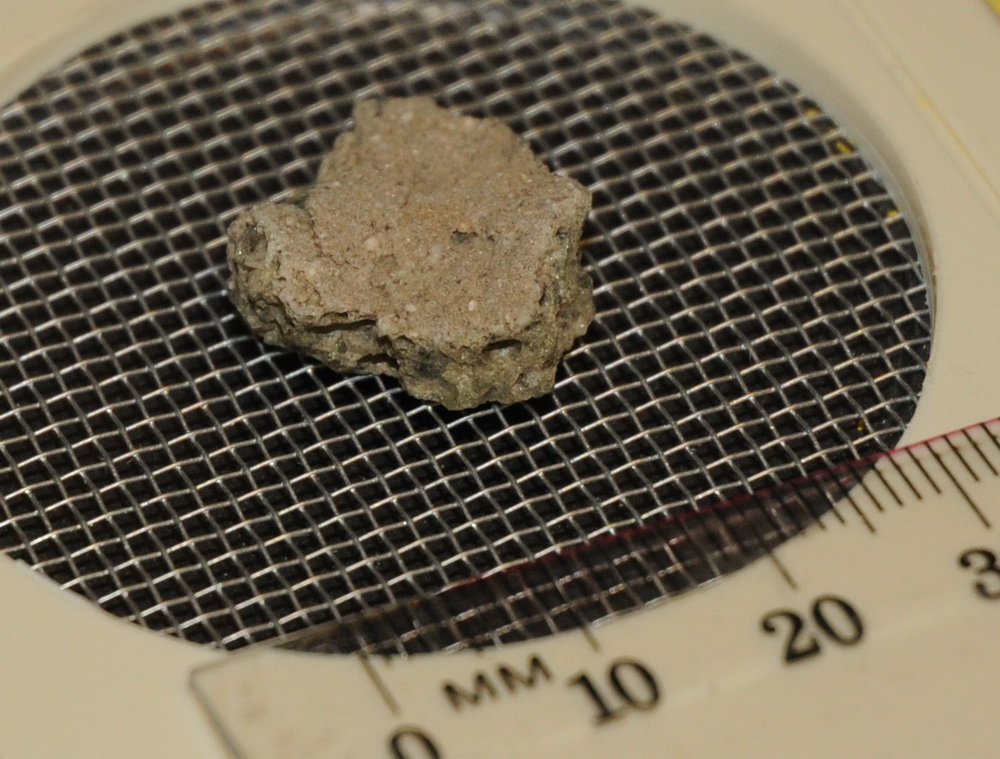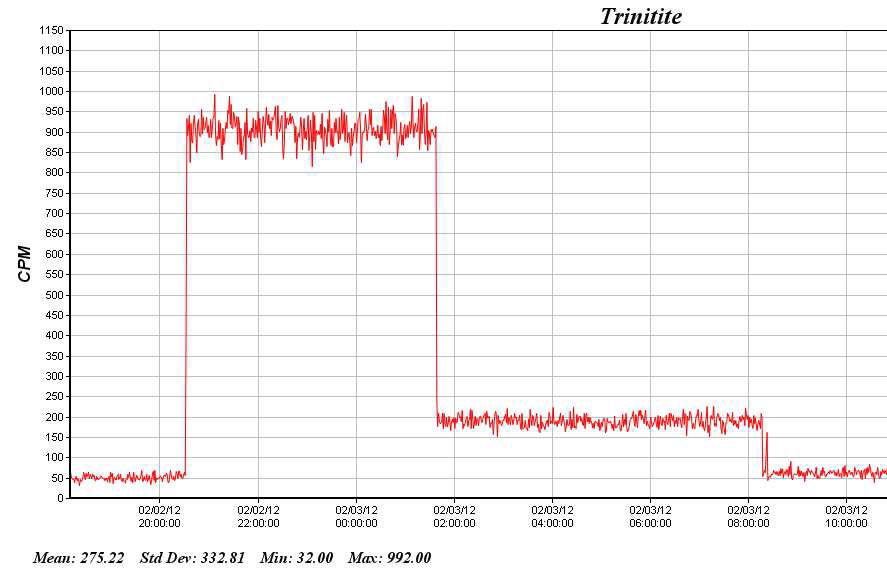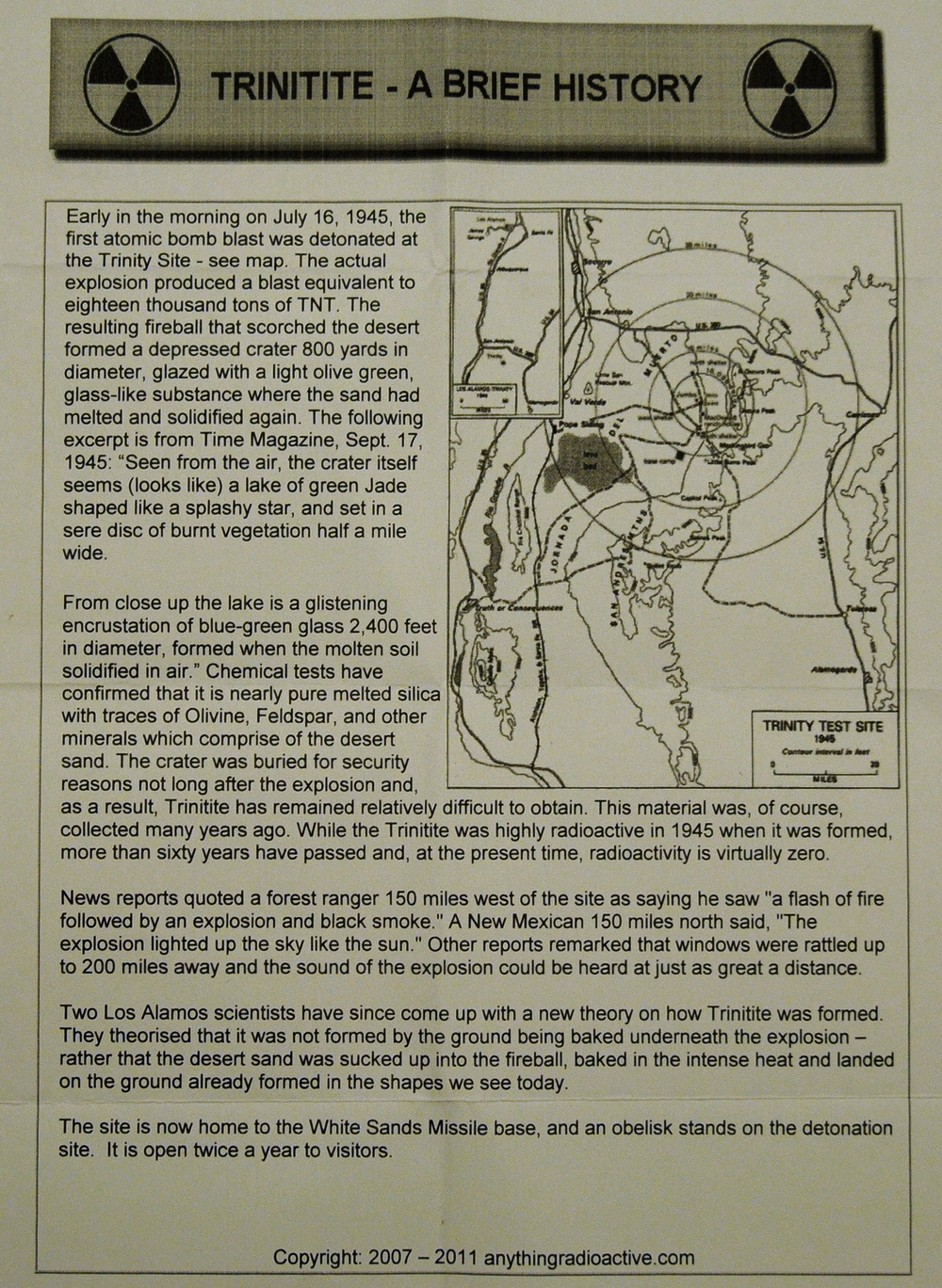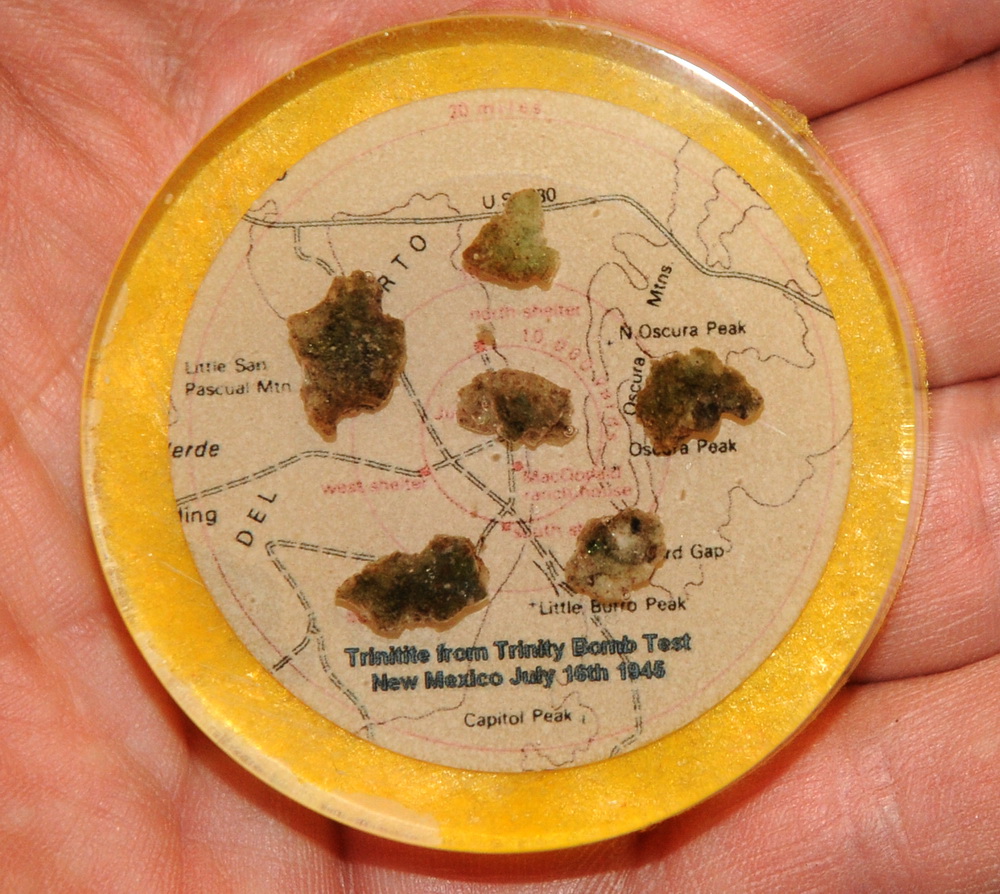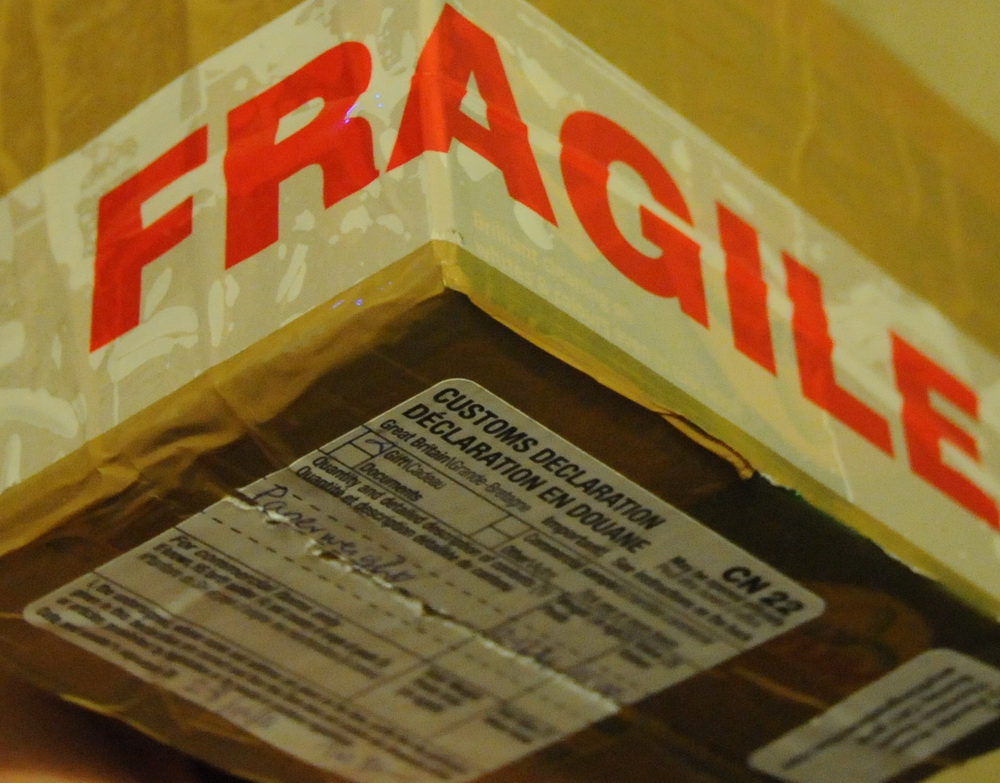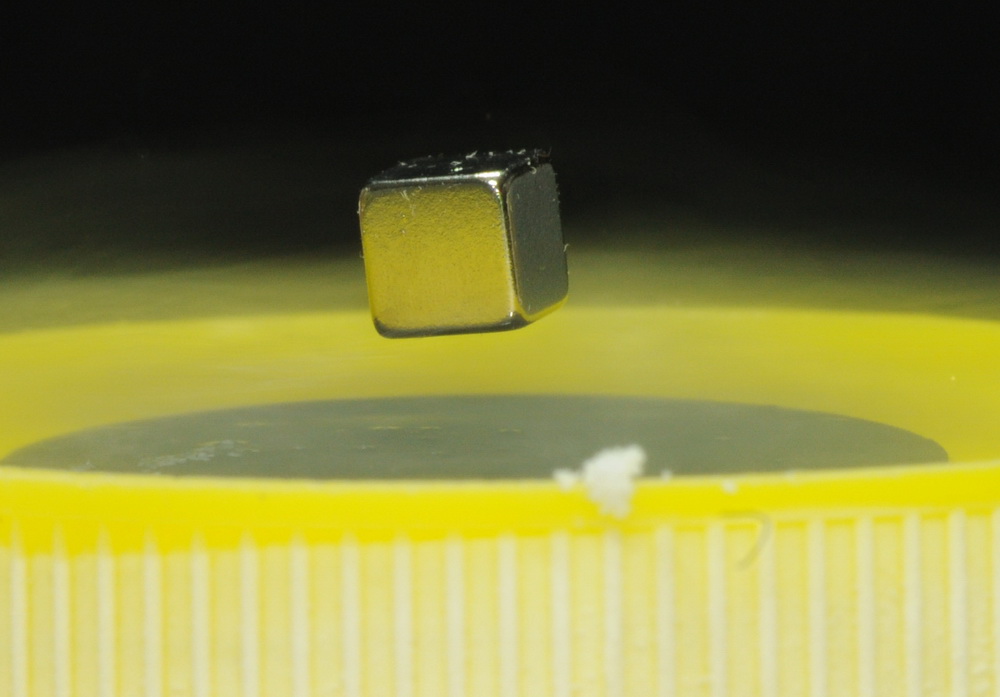Trinitite is glassified soil from the Trinity site of the first atomic blast in 1945. 67 years later it is only mildly radioactive. The site is now covered and new samples are not able to be collected. Nevertheless it was only a few dollars on eBay for this 1.83 g sample. This sample is seen over the port of my pancake Geiger counter.
“Continue reading” for counts, graphs, history and links…
Interestingly, with this specimen, the “bottom” surface has only 20% of the radioactivity of the “top” as the graph shows. This is commonly seen and can be a 10 to 50 fold difference.
The Geiger counter readouts show the background count is 50 counts per minute, Trinitite concave surface is 900 (the tallest peak) and convex surface is 200 (the smaller step on the right).
Hence, this Trinitite specimen reads about 17 times background levels of radiation. Which is still pretty safe as long as you don’t eat it. The glassified pretty green samples have little radioactivity whereas the dull brown ones like this one are much hotter. The radioactivity comes from a variety of sources including Europium (Eu-152), Cesium (Cs-137) and Cobalt (Co-60). Uranium (U-238) accounts for perhaps .01% of the total.
This is probably partly Beta and Gamma radiation as it needs only 10 layers of paper to get 50% attenuation. The paper should block Beta and only slow Gamma mildly.
It is believed that all the worlds Trinitite came from 1500lbs removed illegally in 1947 before it was sealed, many years after the explosion. An interesting story below.
The first sample I obtained (below) was encased in plastic. It had minimal radiation (about 10% over background). There was several mm of plastic to get through, however.
I had to laugh. It came in a box marked FRAGILE. How rough is the Royal Mail compared to an A-bomb? (below)
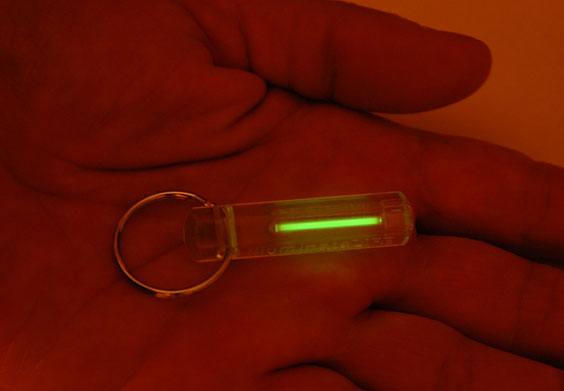 Tritium (this is a gas not Trinitite)
Tritium (this is a gas not Trinitite)
Try something else
External links
Photo Date: Dec 6, 2011
